 With the temperature dropping, it's time to find someone to keep you warm. Find your hookups with our online dating guide!
With the temperature dropping, it's time to find someone to keep you warm. Find your hookups with our online dating guide!
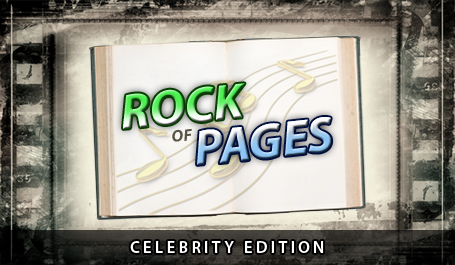
Music Home / Entertainment Channel / Bullz-Eye Home
The most wonderful thing about MySpace is that it presents fans with the opportunity to drop a line to their favorite musicians and, if the stars are aligned just right, those musicians might even take the time to write back. As such, we decided to try and get some of our favorite artists involved with this piece by offering them the opportunity to provide their own most cherished music-related tomes. Maybe it's because it was a topic close to their heart, but we were pleasantly surprised to get quite a few responses, some way more in-depth than we ever could've hoped. We also dropped a few lines to a few of the authors who made it into our own list of 45 books, to get an idea of what their bookshelves looked like.
Michael Azerrad (author of Our Band Could Be Your Life):
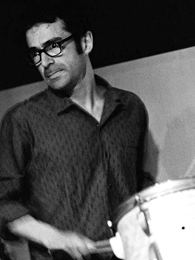 Rock On: An Office Power Ballad, by Dan Kennedy. "This very funny, very smart memoir about working at Atlantic Records not only nails why the music industry is going down the tubes, but details with gut-busting accuracy the mind-boggling absurdity of working in an office."
Rock On: An Office Power Ballad, by Dan Kennedy. "This very funny, very smart memoir about working at Atlantic Records not only nails why the music industry is going down the tubes, but details with gut-busting accuracy the mind-boggling absurdity of working in an office."
African Rhythm, African Sensibility, by John Miller Chernoff. "David Byrne touted this book around the time of Remain in Light, and while it's a bit dry at times, it is nothing short of revelatory about West African music and by extension, American funk."
Bat Chain Puller, by Kurt Loder. "If there's been a better prose stylist in rock criticism than Kurt Loder, I'd like to know."
Black Monk Time, by Thomas Edward Shaw and Anita Klemke. "This is an exhilarating, poignant and often really insightful memoir about the rise and fall of the great '60s garage-rockers the Monks."
Great Pop Things, by Colin B. Morton and Chuck Death. "Here's the most brilliant and funny cartoon history of rock ever."
Hit Men, by Fredric Dannen. "This is a classic, essential reading for anyone who wants to understand the music business."
Lennon Remembers, by Jann S. Wenner, ed. "These are iconic interviews, essential to any sort of literacy about '60s culture."
Mystery Train, by Greil Marcus. "A canonical series of treatises on American music and culture that reveals new depths to artists like Sly Stone, Elvis, Randy Newman, the Band and Robert Johnson."
Night Beat, by Mikal Gilmore. "Nobody walks on the dark side with more wisdom and insight than Mikal Gilmore, a poetic giant of rock journalism."
Please Kill Me, by Legs McNeil and Gillian McCain. "This hilarious and harrowing book proves that nothing melds the pathetic and the noble like punk rock."
Rock and the Pop Narcotic, by Joe Carducci. "Keenly astute, deeply learned and maddeningly opinionated, this pragmatic analysis of what makes rock tick is provocative as hell."
The Mansion on the Hill, by Fred Goodman. "A savvy, gimlet-eyed look inside the inner workings of the industry, must reading for the rock biz savant."
Eric Bazilian (The Hooters):
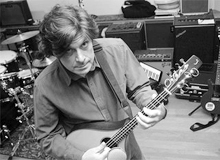 "Recording The Beatles. That is the Bible. That is the Torah of recording. In fact, I'm going to build an ark for it, with a stand and a whole set of blessings that you're supposed to say before you take it out, pass it around the room, and have everyone kiss it. This is the big one. It's by Brian Kehew and Kevin Ryan, and it supplants all others. It's only available online at RecordingTheBeatles.com, and it costs $100, but it weighs about 20 pounds, it comes in a 2-inch tape reel box, and it's the undisputed final word in Beatles recording. There's a whole chapter on the talkback mike they used! There's a lifesize fold-out poster of the console! It's The One."
"Recording The Beatles. That is the Bible. That is the Torah of recording. In fact, I'm going to build an ark for it, with a stand and a whole set of blessings that you're supposed to say before you take it out, pass it around the room, and have everyone kiss it. This is the big one. It's by Brian Kehew and Kevin Ryan, and it supplants all others. It's only available online at RecordingTheBeatles.com, and it costs $100, but it weighs about 20 pounds, it comes in a 2-inch tape reel box, and it's the undisputed final word in Beatles recording. There's a whole chapter on the talkback mike they used! There's a lifesize fold-out poster of the console! It's The One."
John Borack (author of Shake Some Action):
"Well, the first rock book I remember enjoying was Hunter Gaines' biography of The Beatles; I did a book report on that baby in seventh grade. Other ones I've enjoyed are the more recent Conversations with Tom Petty, Bubblegum Music is the Naked Truth, and the ever-popular Heroes and Villains - The True Story of the Beach Boys, by Steven Gaines."
Edie Brickell:
"I don't read music-related books. Well, I did check out a Django Reinhardt biography, but I don't remember the title."
(Further investigation on Bullz-Eye's part turned up only one prominent Reinhardt biography: "Django: The Life and Music of a Gypsy Legend," by Michael Dregni. Edie's reply: "That's the one!")
Captain Sensible (The Damned):
"The Great Psychedelic Discography," by Martin C. Strong
Jeff Chang (author of Can't Stop Won't Stop):
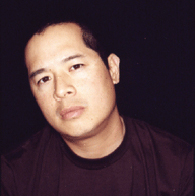 Music books--I could go on and on and on, but here's four:
Music books--I could go on and on and on, but here's four:
"Flyboy In The Buttermilk, by Greg Tate. Papa Tate taught an entire generation of hip-hop journalists how to write unapologetically and with brimming style. He's still the platinum standard for me.
"Black Noise, by Tricia Rose. The book that launched hip-hop studies, a brilliant inquiry into the aesthetics of hip-hop music and African American cultural production on the eve of the millennium.
"England's Dreaming, by Jon Savage. Just a thrilling account of the rise of punk. Savage not only makes music you've heard a million times sound fresh, he makes currents in art theory, fashion, cultural politics seem just as fresh.
"Adventures in the Counterculture (originally published as Hip-Hop), by Steven Hager. The first journalistic book-length account of the movement and, along with David Toop's ‘The Rap Attack,' the wellspring for so much of the work that has come since, including my own."
Ben Clark (The Lashes):
"Please Kill Me," by Legs McNeil and Gillian McCain
"The Dirt," by Motley Crue
"Heroes and Villains: The True Story of the Beach Boys," by Steven Gaines
Justin Currie (formerly of Del Amitri, now doing the solo-artist thing):
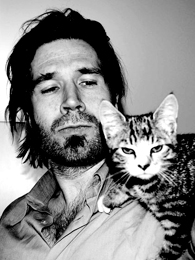 "'Ian MacDonald's 'Revolution in the Head' is an explication of the meaning and impact of the Beatles' music on 20th century culture using the songs themselves as its sole point of reference. MacDonald's understanding of technique and his deep emotional involvement with the material mark this out as the best of all rock books and the introduction alone should be required reading for anyone interested in pop music. Jonathan Gould's recent 'Can't Buy Me Love' co-opts much of MacDonald's forensic approach while similarly avoiding academic posturing, and although it's as brilliant a book about the Beatles as MacDonald's, 'Revolution In The Head' is about more; the transcending capability of music, the magic of coincidence and the possibility of cultures themselves creating or at least demanding genius from their artists. Er, will that do?"
"'Ian MacDonald's 'Revolution in the Head' is an explication of the meaning and impact of the Beatles' music on 20th century culture using the songs themselves as its sole point of reference. MacDonald's understanding of technique and his deep emotional involvement with the material mark this out as the best of all rock books and the introduction alone should be required reading for anyone interested in pop music. Jonathan Gould's recent 'Can't Buy Me Love' co-opts much of MacDonald's forensic approach while similarly avoiding academic posturing, and although it's as brilliant a book about the Beatles as MacDonald's, 'Revolution In The Head' is about more; the transcending capability of music, the magic of coincidence and the possibility of cultures themselves creating or at least demanding genius from their artists. Er, will that do?"
Mick Farren (co-author of Bomp!: Saving the World One Record at a Time):
My favorite rock books are...
Hellfire, by Nick Tosches. “This is Tosches’ biography of Jerry Lee Lewis with Tosches at his most gonzo biblical. It’s a piece of real rock literature.”
Dead Elvis, by Greil Marcus. “Greil's highly academic account of everything that happened to Elvis after he died which, in a weird way, says it all about the illusions of rock & roll.”
“Little Richard's autobiography, the title of which I forget because someone borrowed it and never gave it back. It is basically Richard writing a book about his life – with an English Teddy Boy as his ghost writer – when he's at his most screaming gay cocaine insane.” (Editor’s note: that’d be The Life and Times of Little Richard, which would make Charles White the “English Teddy Boy.”)
Kim Gordon (Sonic Youth):
"I'm With the Band," by Pamela Des Barres
Neil Hannon (The Divine Comedy):
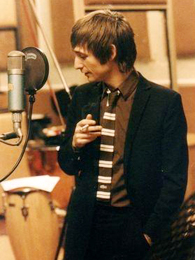 "I've never been a great one for band biographies and the like, but my intense curiosity concerning Scott Walker got the better of me some years ago and I bought 'Scott Walker, A Deep Shade of Blue,' by Mike Watkinson and Pete Anderson. It is, to my knowledge, the only Scott biography in existence, so thank god it's good. The writing is clear, concise and blessedly unprone to the histrionics usually associated with pop literature. The writers seem to understand their tricky remit, to shed light on the most awkward and reclusive of subjects, and resist any attempt to hypothesize where no facts are forthcoming. The early Walker Brothers years are bewildering, the 70's a catalogue of record industry disasters, while the latter period shows how, if you know what you're after and you stick rigidly to it, victory will be yours. A damned good read and a fascinating portrait of a 20th century genius."
"I've never been a great one for band biographies and the like, but my intense curiosity concerning Scott Walker got the better of me some years ago and I bought 'Scott Walker, A Deep Shade of Blue,' by Mike Watkinson and Pete Anderson. It is, to my knowledge, the only Scott biography in existence, so thank god it's good. The writing is clear, concise and blessedly unprone to the histrionics usually associated with pop literature. The writers seem to understand their tricky remit, to shed light on the most awkward and reclusive of subjects, and resist any attempt to hypothesize where no facts are forthcoming. The early Walker Brothers years are bewildering, the 70's a catalogue of record industry disasters, while the latter period shows how, if you know what you're after and you stick rigidly to it, victory will be yours. A damned good read and a fascinating portrait of a 20th century genius."
John Wesley Harding:
"My favorite music book is 'Lost In Music,' by Giles Smith. It's a masterpiece: a memoir, before such things were 10 a penny, about a minor career in a not successful rock band in the U.K. Probably hard to find in the U.S.A., but these things are not so tricky anymore what with Amazon, etcetera. Suck it and see. I'm right!"
Robyn Hitchcock:
 "Two Beatles books I really like: Revolution in the Head and The Complete Beatles Recording Sessions, by Michael Lewisohn. With Michael Lewisohn's book, any day of the year you can look up…say, August 22nd…and see what The Beatles were doing then. 'Ah, they were together in the studio for the last time! It must be a sacred day!' You have that, or you have Revolution in the Head. They both describe every song. You look up every song…you can look up 'Baby's in Black,' and you can see who played what on it. Either it's mostly John or mostly Paul, and George put this line in or whatever, and then you have his comments on it, and he's very perceptive. I really like both those. If I can't sleep, I'll just wander 'round and look into Beatles facts. It's great, because if you just listen to the Beatles enough, you want to read about them, and the thing about them is that it's also kind of when the world went into color, and you can keep re-running that story because it's very finite: from 1960 to 1970. Or 1962 to 1969. Whatever. But you just keep going 'round, and you can see the progress through the '60s as they developed, matured, and grew apart. And you can just endlessly keep replaying that story, with all the music to go with it."
"Two Beatles books I really like: Revolution in the Head and The Complete Beatles Recording Sessions, by Michael Lewisohn. With Michael Lewisohn's book, any day of the year you can look up…say, August 22nd…and see what The Beatles were doing then. 'Ah, they were together in the studio for the last time! It must be a sacred day!' You have that, or you have Revolution in the Head. They both describe every song. You look up every song…you can look up 'Baby's in Black,' and you can see who played what on it. Either it's mostly John or mostly Paul, and George put this line in or whatever, and then you have his comments on it, and he's very perceptive. I really like both those. If I can't sleep, I'll just wander 'round and look into Beatles facts. It's great, because if you just listen to the Beatles enough, you want to read about them, and the thing about them is that it's also kind of when the world went into color, and you can keep re-running that story because it's very finite: from 1960 to 1970. Or 1962 to 1969. Whatever. But you just keep going 'round, and you can see the progress through the '60s as they developed, matured, and grew apart. And you can just endlessly keep replaying that story, with all the music to go with it."
Tam Johnstone (The General Store):
"'The Complete Beatles Recording Sessions,' by Mark Lewisohn. I love it because it's a total nerd-fest for Beatles nuts, of which I am one, and has been put together by Lewisohn, one of the few people on Earth to have access to the original Beatles master tapes. The lucky bastard! It's basically a studio diary of every single Beatles session – recording, mixing, etcetera – and has interviews with engineers, tape operators, and EMI staff who were around at the time. I must have read it 100 times. That's how cool it is."
Legs McNeil (co-author of Please Kill Me):
"I hate music books, with a few exceptions: Nick Tosches' Jerry Lee Lewis bio, Hellfire, and Bob Greene's hysterically funny Billion Dollar Baby, about the Alice Cooper Christmas concert of 1974."
Terri Nunn (Berlin):
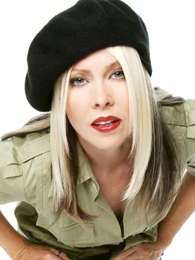 "I can't list just one! My very favorite is probably not in print anymore; it's called 'Rock 'N' Roll Woman,' and it's a bunch of interviews from 1974 with female artists including Grace Slick, Carly Simon, Bonnie Raitt and others. I read those interviews over and over as a kid, imagining a life like theirs, and I still have it.
"I can't list just one! My very favorite is probably not in print anymore; it's called 'Rock 'N' Roll Woman,' and it's a bunch of interviews from 1974 with female artists including Grace Slick, Carly Simon, Bonnie Raitt and others. I read those interviews over and over as a kid, imagining a life like theirs, and I still have it.
"The next one that had an effect on me is 'The Dirt,' by Motley Crue, especially 'The Application of Cog Theory to the Development and Maturation of a Common Rock Group.' This has to be the best description of the music business I've ever read. It describes the process of success as a machine we grab onto, then get stuck on, and some killed by. My favorite quote - the truest about music success - is when they talk about reaching the pinnacle of the machine, saying, 'The cog gives artists everything they have ever dreamed of, everything they could ever want except for privacy, solitude, friendship, stability, love (both familial and romantic), and peace of mind.' Most of the things that matter. Yup: you won't get any of those.
"The last two that have to be included are 'Kurt Cobain: Journals' and 'No One Here Gets Out Alive, about Jim Morrison and The Doors. I wanted to be Jim Morrison, one of the greatest performers in the history of music, and it's a great book, too. Getting into Cobain's head was illuminating and fantastic; he was one of the greatest talents in my lifetime, and I'm pissed off he killed himself."
Glen Phillips (Toad the Wet Sprocket):
"I'd recommend 'So You Want To Be A Rock and Roll Star,' by Jacob Slichter. After that, 'Godel, Escher, Bach: An Eternal Golden Braid,' by Douglas R. Hofstadter. I haven't read much rock lit."
Kevin Ridel (AM Radio):
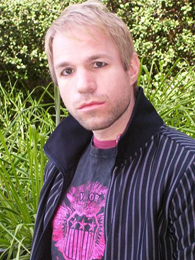 "Small Change: A Life of Tom Waits," by Patrick Humphries. "I found this book very interesting because I'm a big fan of Tom Waits and his music. It gives you some insight about the man behind the colorful lyrics. It's also a very short book, which was a great fit for my reading attention span."
"Small Change: A Life of Tom Waits," by Patrick Humphries. "I found this book very interesting because I'm a big fan of Tom Waits and his music. It gives you some insight about the man behind the colorful lyrics. It's also a very short book, which was a great fit for my reading attention span."
"Rivers' Edge: The Weezer Story," by John D. Luerssen. "This was a very interesting book for me because it's about my good friend Rivers and even references situations that I was involved in. I found myself going down memory lane with this book. Though there are many factual holes in it, the writer did a great job with the limited info he had. The 'neat' factor of this book is that it does dance around the Rivers' Edge, since everyone but Rivers was interviewed for it, hence the title."
"All You Need to Know about the Music Business," by Donald S. Passman. "It was constantly recommended to me by music attorneys over the years, but I also highly recommend it, especially if you want to know how the whole publishing mystery works."
Ira Robbins (editor, The Trouser Press Record Guide):
I've omitted biographies, autobiographies (too many to consider fairly right now), and reference books that mean a lot to me but whose appeal is hard to convey. I'm sure I'm forgetting some of my faves, but when your bookshelves are stacked two deep...
Unsung Heroes of Rock 'n' Roll, by Nick Tosches – “Few depictions of the lives and music of rock pioneers -- many of them previously (and shamefully) unknown to me -- have such vivid and infectious conviction. I have never erased Nick's description of Wanda Jackson's singing as sounding like her G spot was hot enough to fry an egg, and i think of that every time I listen to her, which is often, grace a Tosches. Ditto Wynonie Harris, Louis Jordan, Ella Mae Morse, Louis Prima and Keely Smith and a few other greats I met in these pages. Inspirational rock writing at its finest.”
The Mansion on the Hill, by Fred Goodman – “In this critical and unflattering examination of Albert Grossman, Jon Landau, and their respective managerial charges -- Bob Dylan and Bruce Springsteen -- Goodman makes a ton of significant points about the individuals and their impact. Not for the faint-at-heart fan, this combines the indignant righteousness of muckraking expose with the inspiring disillusion of a true believer who spots those inevitable feet of clay.”
The Dark Stuff, by Nick Kent – “I always thought Kent was a genius when I read him in the NME in the '70s; delving into this belated compendium of his best work (much of which originally ran in The Face after I ran from it) reminded me why. I've never met the guy, and everything I've ever heard about him convinces me i shouldn't, but he tells me more about a particular league of tormented artists I thought I knew (here you get Brian Wilson, Roky Erickson, Sid Vicious, Jerry Lee Lewis, Iggy, Lou Reed, Shane McGowan and others) than anyone else ever has.”
The Who Concert File, by Joe McMichael and "Irish Jack" Lyons – “Having seen a good number of Who shows, I find this to be like having someone else not just share and elaborate on my own memories, but place them in context and even, in a sense, keep them safe. Much obliged, mates.”
The Beatles Recording Sessions, by Mark Lewisohn – “Someone's nicked my copy recently, so I'm pissed about that, but this book is kind of amazing in its session by session dissection of how efficiently the Fab Four made their records. A couple of takes here, some overdubs there, lunch, a bit of a mixdown, and there you have it! Another million-seller. Fascinating in its you-are-there atmosphere, and a much-needed emetic for all the obsessive no-talents who take years to squeeze out one half-useless album.”
Sound Bites, by Alex Kapranos – “More than a novelty, a real breakthrough: a knowledgable and entertaining food book by someone who did time in various kitchens before becoming a brilliant rock singer.”
Glam!, by Barney Hoskins – “It bugs the crap out of me that there hasn't been an exhaustive book on the glitter-rock era, but Barney did a fine job distillling the essence of the story, and what it all meant to a young Englishman at the time, in this thin volume.”
The Aesthetic of Rock, by Richard Meltzer – “Few of the founding fathers have written as much rubbish as R., but this is the godhead, where he simultaneously created and destroyed the very notion of writing about rock music as a self-defined art form. It's like being given the keys to dad's car for the first time and driving it into a tree. A glorious beginning and an equally glorious finish. Truth be told, Meltzer pulled himself up many times later in his career, but this is the monument that will stand.”
After the Ball, by Ian Whitcomb – “Proving that one-hit wonders can have glorious second acts, the English academic tells the story of popular music ‘from rag to rock’ with refreshing enthusiasm, sincerity and scholarship. It's always humbling to find out what you didn't know you don't know as I learned when I first followed this particular bouncing ball 20 years ago. It's from 1972; I read it in as a reissue in the subsequent decade. I still recommend it.”
Starmaking Machinery, by Geoffrey Stokes – “It's been decades since I've taken this one off the shelf (it's from 1977), but I always thought there was something ineffably wonderful about an examination of everything that's wrong with the record business -- when there was still a young, naive record business to have things wrong with it -- from the POV of Commander Cody and His Lost Planet Airmen!”
Henry Rollins (author of Get in the Van):
"My favorite music oriented read is Bird Lives!: The High Life and Hard Times of Charlie (Yardbird) Parker, by Ross Russell. Russell recorded him for the Dial label. The book not only takes in the Jazz scene at the time but really gives you an idea of what these guys were going through. It's very well written and really inspired me to learn more about the older school of Jazz."
Duglas T. Stewart (BMX Bandits):
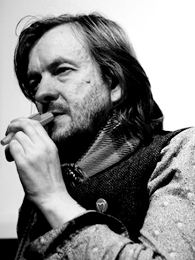 "Always Magic in the Air," by Ken Emerson. "This book tells the story of seven pairs of songwriters who were pretty much the architects of the modern pop era of songwriting. The legendary 'Brill Building' writing teams are Leiber & Stoller, Goffin & King, Bacharach & David, Barry & Greenwich, Sedaka & Greenfield, Pomus & Shuman and Mann & Weill. This is the story of how they wrote many of their genre-defining hits for artists including The Shirelles, Elvis, Dionne Warwick, The Monkees, The Drifters and The Ronettes and how they touched a new era of artist/writers including The Beatles, The Beach Boys and The Byrds. It is also the story of the dynamics of these sometimes troubled but ultimately creative partnerships, so you can see how Goffin and King turned their own falling in love and then later break up of their marriage into great universal and timeless pop songs. Emerson's own opinions on specific songs may not always match my own (he doesn't like 'Sugar. Sugar,' by The Archies, even though it's great) but he has put together a pretty unique and informative document of some of pop's true pioneers' lives and work."
"Always Magic in the Air," by Ken Emerson. "This book tells the story of seven pairs of songwriters who were pretty much the architects of the modern pop era of songwriting. The legendary 'Brill Building' writing teams are Leiber & Stoller, Goffin & King, Bacharach & David, Barry & Greenwich, Sedaka & Greenfield, Pomus & Shuman and Mann & Weill. This is the story of how they wrote many of their genre-defining hits for artists including The Shirelles, Elvis, Dionne Warwick, The Monkees, The Drifters and The Ronettes and how they touched a new era of artist/writers including The Beatles, The Beach Boys and The Byrds. It is also the story of the dynamics of these sometimes troubled but ultimately creative partnerships, so you can see how Goffin and King turned their own falling in love and then later break up of their marriage into great universal and timeless pop songs. Emerson's own opinions on specific songs may not always match my own (he doesn't like 'Sugar. Sugar,' by The Archies, even though it's great) but he has put together a pretty unique and informative document of some of pop's true pioneers' lives and work."
Suzy Shaw (co-author of Bomp!: Saving the World One Record at a Time):
“You can’t beat Lester Bangs , he's hilarious! I loved some of his pieces in Psychotic Reactions and Carburetor Dung. And, of course, Please Kill Me, by Legs McNeil and Gillian McCain, is pretty entertaining too, for some good behind-the-scenes record biz gossip.
John Tobler (Author of MTV's Who's Who in Rock Video)
"My favourite rock book authors? My longtime chum Pete Frame, whose various volumes of Rock Family Trees are packed with brilliant information, while his much more recent book about 1950s Britain, The Restless Generation, is unputdownable for those of us of a certain age. Another personal friend is Johnny Rogan, who has written several incredible books, most notably his continuing series on The Byrds, the latest of which, Timeless Flight Revisited – The Sequel, demonstrates an almost unbelievable depth of research, while earlier books on Neil Young and CSN&Y are similarly thorough. Jerry Hopkins used me to do research for a David Bowie book, but this volume pales in comparison to his two brilliant books on Elvis Presley from many moons ago, Elvis: A Biography and Elvis: The Final Years. If you read this, Jerry – hello! (Ed. Note: The two books have since been combined into one tome: Elvis: The Biography.) "Finally, one of my musical passions has been for the work of Phil Spector, and Mick Brown's recent Tearing Down The Wall Of Sound is certainly the best book yet on the so-called 'Tycoon Of Teen.'"
Jason Trachtenburg (Trachtenburg Family Slideshow Players):
"'What is Art,' by Leo Tolstoy is my favorite music book. Also, 'Auditioning for the Musical Theatre' (by Fred Silver)."
Jen Trynin (author of Everything I'm Cracked Up To Be):
"The two books I'll recommend are So You Want To Be A Rock and Roll Star, by Jacob Slichter, and Petal Pusher, by Laurie Lindeen. Both books are smart, funny, and real looks at the music biz and ourselves."
Kyle Vincent:
"My version of the bible is my hardbound 'Billboard Hot 100 Charts of the Seventies' book. It's every Hot 100 chart of the best decade ever for music, in its actual size. A close second would be the 'Billboard Bubbling Under' book -- but that's only because I'm in it, holding the all-time record for weeks bubbling under the Hot 100 without ever entering the Hot 100. Eleven straight weeks! Not sure I should be so proud of that record."
Crystal Zevon (author of I'll Sleep When I'm Dead):
"The truth is that I don't really read, or rarely read, music bios. That said, I loved Bob Dylan's Chronicles, Volume One…but, then, I love all things Dylan. And I do want to read Eric Clapton's book. Oh, I did love the Edith Piaf biography, and it's always stuck with me, but…I can't remember the name of the book! I read it many years ago."
(As of when we went to press, we had not heard back from Zevon for clarification, but since she specified that it was a biography rather than an autobiography, we're betting she's referring to Simone Berteaut's book, Piaf, which is – unfortunately – both out of print and very expensive to come by.)
You can follow us on Twitter and Facebook for content updates. Also, sign up for our email list for weekly updates and check us out on Google+ as well.










